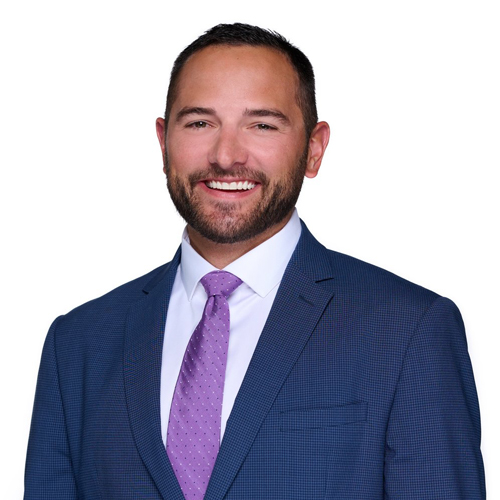What does work mean to you? For many, it means a way of self-actualization, achieving goals, working your way up the ladder, obtaining promotions, and looking back with pride at your successes once in retirement. But for many others, work means a place you’re forced to endure, and the less time spent there, the better. For those with that mindset, the prospect of a forty-year-plus career may sound overwhelming. If that sounds like you, you’ve probably considered retiring as early as possible – but to achieve that, you need to obtain financial independence on a much faster timeline, when attaining financial independence is difficult for many to achieve before even reaching regular retirement age.
That’s where the ‘F.I.R.E.’ movement comes in. FIRE stands for Financial Independence, Retire Early, and it’s a lifestyle that focuses on achieving financial independence as soon as possible. The concept is pretty simple: save as much money as possible, invest as much as possible, and retire as early as possible so you can begin to truly enjoy life, with many aiming to retire by their mid-40s or even their 30s.
How To Achieve FIRE
Probably the most significant factor in determining how and when you can achieve FIRE is to start saving as much as possible from an early age and aim for a specific sum of money rather than a particular retirement age. What should that sum of money look like? Of course, it depends on multiple factors. Still, as a general rule of thumb, you should figure out your annual income requirements, subtract your expected investment returns, and then multiply that number by the number of years you wish or expect to be in retirement.
Let’s say you want to retire at forty, plan to have annual expenses of $60,000 a year, a 7% rate of return, and expect a 50-year retirement. How much will you need?
One quick caveat before we go further: we’re assuming a 7% annual return even though the S&P 500 has about a 10% historical return. Additionally, for simplicity’s sake, we’re assuming a static rate of return even through retirement, when we would presumably switch to more conservative investment strategies that would likely see returns of less than 7%.
When it comes to long-term planning, it’s best to take a conservative approach. If your portfolio outperforms your expectations, then you’ll be pleasantly surprised. If your portfolio doesn’t meet your lofty expectations, you could be disappointed or even experience financial ruin. Let’s play it safe when it comes to our savings!
Assuming a 3% inflation rate, you’d need approximately $1,350,000. The annual growth will help offset your withdrawals while outpacing the historical inflation rate. While $1,350,000 is a significant amount of money, it’s not unachievable for someone who begins saving from an early retirement.
You could achieve that by placing $2,700 a month into an investment account, growing at 7% for 20 years, starting from the age of 20.
$2,700 would be 20% of a $13,500 budget (assuming a 50/30/20 budgeting rule).
So, we run into our first problem. What 20-year-old earns $13,500 a month? And if they did, what are the chances they’d have the discipline not to squander it all each and every month?
Unless someone is one of those rare 20-year-olds with financial discipline, one would have to start later and save significantly more to make up for the lost time, settle for a lower withdrawal rate, or work longer. Again, an early retirement isn’t unattainable under such circumstances; it’s just incredibly difficult.
The Problems with FIRE
Simply retiring to avoid work may not be the best use of your time and resources. Retirement isn’t just about retiring from work; it’s also about retiring to something. That could be philanthropy, volunteering, hobbies, sports, or even starting your own small part-time business. However, it could be difficult to maintain a strong sense of purpose with a prolonged retirement. Plus, hobbies, traveling, and sports can get expensive, and remember, your peers will be at work. Who will you enjoy your free time with?
When you retire early, all the risks associated with retirement, such as inflation and market volatility, are amplified. Periods of high inflation and negative market returns can quickly send you back to submitting resumes.
But those aren’t your only problems.
Health Insurance
Many companies provide health insurance for employees or pay a portion of the monthly premium. Once you retire, however, you’re on your own to either pay for your medical expenses (unlikely) or purchase your own health insurance. National average premiums for an individual are around $539 per month. For a couple with a child, the total could rise to approximately $1,230 per month. And remember, these are averages—actual costs can be significantly higher, depending on the specific plan and location. Furthermore, these prices tend to increase each year.
Social Security Gap
Retiring early means you will not receive Social Security benefits until at least age 62. This gap can significantly affect your financial plan, as you’ll need to rely entirely on your savings and investments to cover expenses until then. Without the cushion of Social Security income, the risk of prematurely depleting your savings increases, especially if unexpected expenses arise or if your investments underperform.
Tax Risk
You’ve done the calculations and determined you’ll have enough for an early retirement. But are you assuming that the tax rates you experience now will remain static? Tax rates can easily increase in the future, and we shouldn’t assume they will stay the same or go lower. Doing so can quickly derail your financial situation at any stage of your journey.
Longevity Risk
Retiring early also amplifies longevity risk—the risk of outliving your savings. With advances in healthcare, people are expected to live longer and longer, and if you retire at 40, you could need your savings to last longer and longer, too. Which, in a way, is a great thing. It’s just challenging to factor it into a financial plan. For every year you remain alive longer than expected, your financial situation could deteriorate at a compounding rate.
The Difference a Year Makes
Let’s say you’re hemming and hawing about retiring this year. You have $1,000,000 in the bank. What would it mean to work another year? Assuming a 10% return, that would be an extra $100k plus another year’s salary. That extra 10% could be what it takes to power through a market downturn, especially if one were to occur in your early years of retirement, as you’ll have more time for your funds to recover. Plus, you could have another year with your workplace insurance and other benefits. After all, what’s a year in the grand scheme of things?
In Conclusion
My clients come to me because I help them achieve their financial goals, often with retirement top of mind. However, my services don’t stop with just helping them achieve retirement but oftentimes to help clarify if retirement is even the best thing for them. A lot of people rail against work, but for many, it provides a sense of purpose that even a hobby may not fill. Also, retirement is expensive, and if you’re considering an early retirement, will you settle for a ‘boring’ retirement if the financial scales start tipping against you? And we haven’t even factored in children into this piece. Can you afford an early retirement and the costs of raising a child and college expenses?
Maybe you can – and if that’s you, great. But too many people, in their single-minded grind for an early retirement, start missing the forest for the trees and set themselves up for early retirement disappointment. And finally, and perhaps the most important thing. You only have one youth; do you want to spend it boiling top ramen while your friends go on vacation without you? This isn’t an advertisement to be a spendthrift, but we really need to think hard about how we spend our time. We never know how many years we have left, and planning for an early retirement could come at the sacrifice of the best times of your life.
If you’re considering going down the FIRE path, don’t hesitate to reach out by clicking the button below. We’d be happy to set you up with a realistic financial and investment plan that won’t see you boiling ramen or missing out on memory-making opportunities.













